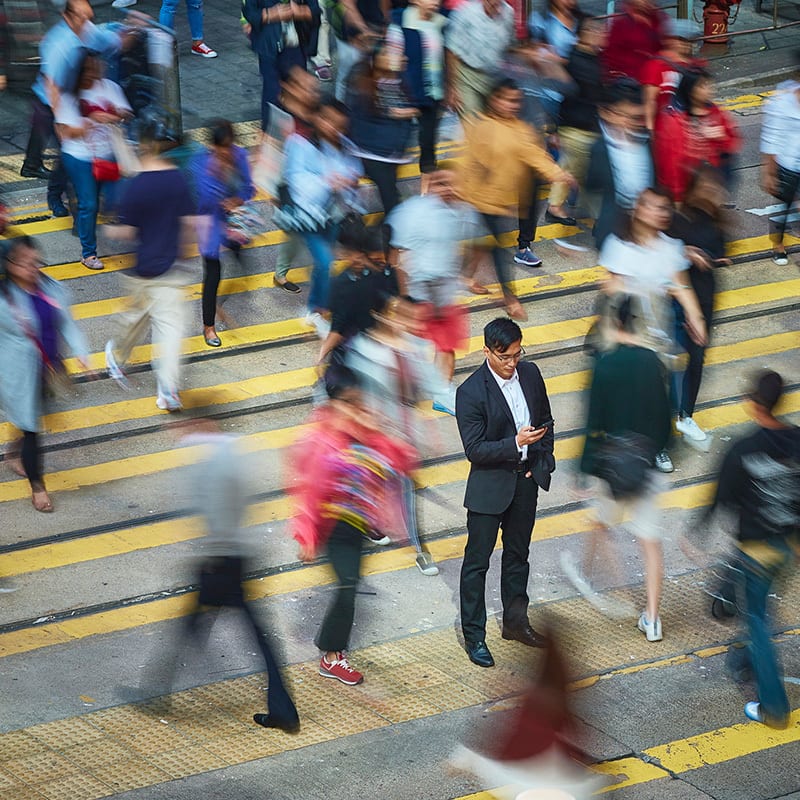Blog
Looking after your mental wellness during COVID-19
20.03.2020

As the world continues to cope with the unprecedented impacts of the novel coronavirus pandemic, an increasing number of people will be directed to isolate themselves at home or practice social distancing, and work from home.
These actions can cause negative psychological effects including anxiety, post-traumatic stress symptoms, confusion and anger. Dr. Adrian Hyzler, Chief Medical Officer at Healix International has put together some advice on how employees can tend to their mental wellness while navigating the new reality we have all found ourselves in due to COVID-19.
Things you can start doing today to improve mental wellness
- Maintain a routine: This is so important! Maintain a regular routine to mimic the structure that was previously provided by your normal working life. This will go a long way in helping you to feel productive. Part of that routine should include showering and getting dressed; tempting though it may seem, don’t lounge around in your pyjamas all day!
- Eat regular, healthy meals: Eating well will help maintain your physical and mental well-being. Whenever possible, make meals from fresh ingredients that you can buy locally.
- Exercise: A fitness routine, whether it consists of a walk with the dog, skipping with a rope for 20 minutes in the garden or using any exercise equipment you might have at home, will serve as a distraction and help to boost your endorphins.
- Stay entertained: When not working, in your leisure time: read books; write in a journal; listen to music - take the time to do things that you never had room for in your busy life.
- Engage with others: Use video conferencing (FaceTime, Skype or Zoom, for example) to stay connected with colleagues, friends and family. In times like these, a phone call is better than a text!
- Shut it down: Switch off social media for a few hours each day so that you are not constantly bombarded with terrible stories, haunting imagery and incessant memes that have you fatigued with the whole COVID-19 situation. This sounds extreme to some, but you might try deleting your social media app from your phone for the day! You’d be surprised how much better you’ll feel after a “digital detox.”
- Know your sources: Select a small number of trustworthy media sources so that when you do search for news about COVID-19 you are not reading fake news, opinion pieces and viral threads that only increase your anxiety. Be careful what you share on social media; be aware that you could be contributing to others’ anxiety. At Healix we provide regularly updated advice on our website. For up-to-date case numbers, deaths and geographical spread, we refer to an online dashboard developed by Johns Hopkins University, bringing together data from several official bodies including the WHO and the Centres for Disease Control.
- Break the 24/7 news cycle: Don’t constantly monitor the news. Set aside a short period each day to check news stories and let that be it.
- Explore: While practicing social distancing (staying six feet apart at minimum) take note that society is still there! There are other people walking, jogging and riding bikes. You can maintain a safe distance from them while still offering a smile and a wave. There are many parks and areas that are open to the public so that people can exercise and get fresh air.
- Have some fun: Join online communities for an hour of Scrabble, Monopoly or other traditional games that can now be played online in order to get a sense of community.
- Get enriched: Learn a new language or skill, maybe enrol in an online course.
- Tackle your DIY list: Do those tasks you have been putting off forever, including household repairs and gardening.
- Don’t be afraid to ask for help: If you do get anxious and need some professional help, access mental health professionals via helplines that are open 24 hours a day. Know that everyone will get anxious about this pandemic to some degree and it’s ok not to be ok!
- Remember to breathe: It sounds pretty basic but take a deep breath whenever you start to feel overwhelmed. You may also want to try meditation apps as well as online yoga classes and wellbeing videos.
- Be kind: This goes for yourself, your colleagues and those around you; check up on vulnerable neighbours and offer assistance as you’re able. Help with shopping for food and medications (drop things off at the door) or offer just conversation (maintaining social distancing of course).
- Take space: If you are in a family, give each other breathing room!
- Try and find some meaning: Though it may seem impossible at times, try and learn from this experience. Focus on what matters the most to you and take some time to really bond with those you care about.




